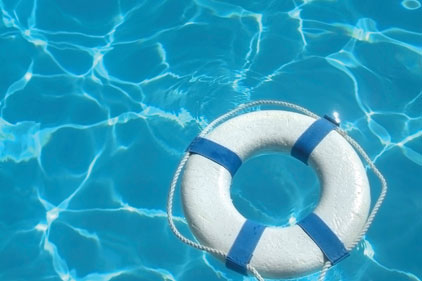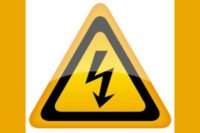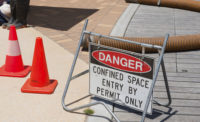Shell is tasked with communicating personal safety information to nearly 90,000 employees in more than 90 countries. And the company has nearly 50,000 service stations globally.
Let’s put aside Shell’s myriad systems for facility process safety and focus on the simplicity of its 12 life-saving rules for personal safety. They are enforced as mandatory requirements for all Shell employees and contractors. Shell has zero tolerance for breaking these core rules, which in other companies might be called things like “cardinal rules” or “essential expectations.”
Life-savers
Here are Shell’s 12 life-saving rules:
1-While driving, do not use your cell phone and do not exceed speed limits.
2-No alcohol or drugs while working or driving
3-Do not smoke outside designated smoking areas
4-Do not walk under a suspended load
5-Protect yourself against a fall when working at height
6-Obtain authorization before overriding or disabling safety critical equipment
7-Obtain authorization before entering a confined space
8-Verify isolation before the work begins and use the specified life-protecting equipment
9-Conduct gas tests when required
10-Work with a valid permit when required
11-Follow prescribed journey management plan
12-Wear your seat belt
According to Shell’s website statement: “Our mandatory 12 Life-Saving Rules reinforce what employees and contractors must know and do to prevent serious injury or fatality: for example, wear seat belts and do not speed or use mobile phones — even hands-free — while driving.
“If they break the rules, employees face disciplinary action up to termination of employment, while contractors can be removed from the site and barred from future work with Shell.”
“When we look back in Shell, we found that we have over the years quite a number of fatal accidents which were related to people not sticking to the rules,” said vice president of safety for Shell, Arjan van Dijk, in a podcast interview with EarthSky.
“We prefer you don’t work for us”
“The reason people didn’t stick to the rules was either they were too difficult, too complex, people didn’t understand them, and secondly, they were not enforced,” said van Dijk. So when Shell rolled out its campaign with the 12 simple life-saving rules, “we made it very clear: if you don’t want to stick to a life-saving rule, you don’t want to work for Shell,” said van Dijk. “If you deliberately don’t put on your safety belt when you are driving or you use a mobile phone when you’re driving, we think that the risk for yourself is too high and we prefer you don’t work for us.”
The rules have made a positive impact on safety, according to Shell. The number of fatalities has dropped significantly, the company states. Shell also sees a multiplier effect. “If you get good safety performance because people stick to the rules, they also tend to stick to the rules on repairing equipment, so your reliability goes up,” said van Dijk. “And so your business performance goes up.”
These 12 basic safety rules, says Shell, become an “enabler” for improvements in other areas of the business.
Sticking to the rules
There’s one more critical component of Shell’s personal safety rules: supervisor and manager accountability for enforcing the rules. Shell bosses were “asked” (corporate-speak for “told”), “What are you going to do when people don’t stick to the rules?”
VP of Safety van Dijk recalls when he was a refinery manager, he was part of the safety problem. “I saw people getting hurt because they didn’t stick to the rules, but part of the problem was I wasn’t clear about what I expected. I wasn’t always doing proper follow-up. For me life-saving rules are important because they allow me and drive me to be consistent and act as a role model.”
A matter of respect
Apart from the life-saving rules, Shell has what it calls “the three golden rules.” Comply. Intervene. Respect.
Comply and intervene have to do with the 12 life-saving rules. Employees and contractors are mandated to comply. Bosses are mandated to intervene when rules are not being followed. Respect is not what you might expect, which in a number of firms would be respect for co-workers, cultural diversity, company property and company values. At Shell, respect is directed externally, as a form of corporate social responsibility.
“Respect your neighbors,” is how van Dijk puts it. “Respect the people living around us, living around our facilities, the places we drive through with our trucks.” This respect or social responsibility is critical for operations like Shell’s and chemical facilities and other firms with a low-potential but high consequence risk profile. If something goes wrong — a spill, a leak, an explosion — it can go very wrong. The public is endangered. Evacuations might be necessary. And for the firm, its reputation and brand loyalty can take a beating.
Shell believes its 12 life-saving rules meant for employees and contractors ultimately underlie and reinforce attitudes and behaviors that protect Shell’s neighbors, build constructive community relationships, and enable the company to operate in environmentally safe and socially responsible ways.





